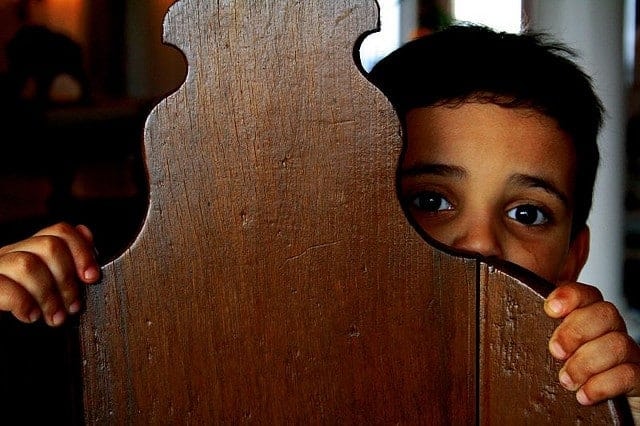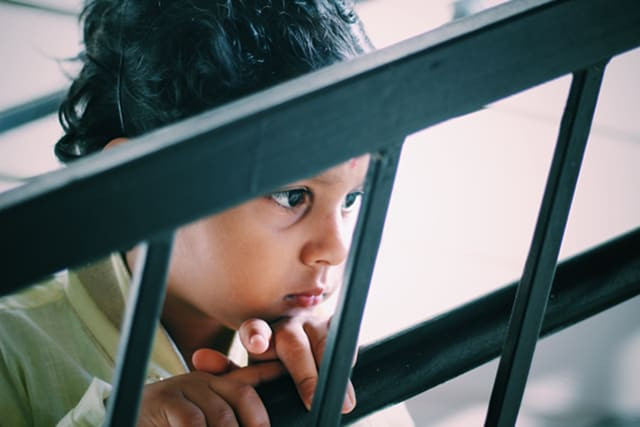Parents must be careful with these signs in their children.
Every child experiences anxiety; it's just an emotional part of childhood. But sometimes, those anxious feelings are a sign of an underlying anxiety disorder.

Academic stress, depression, substance abuse, eating disorders… and these anxious children are at higher risk of suicide.
How do you know if your child is being too anxious?
If your child says anything repetitively, these phrases may be code words for “I am worried.”
For example:I have a stomachache.. I have a stomachache. I feel like my stomach might explode.
Feelings of anxiety often manifest in the body. Stomach aches are common in anxious children because during an anxiety attack, the body diverts blood flow from the abdominal organs to the brain, slowing down digestion and possibly even causing nausea.
"I'm not hungry."When too anxious, children often feel full and lack the desire to eat.

“Can I stay home?”When children are anxious they may look for ways to avoid stressful situations.
“I want to leave here”. Children who are anxious in a stressful environment or situation will often ask to leave so they can escape the stress.
“It's very difficult for you to do this, it's not simple”. Anxious children tend to expect perfection from themselves, so they may avoid a difficult task to avoid making mistakes.
"Are you mad at me, Mom?"Many anxious children will seek constant approval or reassurance from others.
“I can't sleep”. Anxious children may have difficulty sleeping.
"I'm so tired."Children with anxiety often have difficulty falling asleep or staying asleep, but sometimes the only sign you'll see may be that they complain of feeling tired.
“What if…?”Anxious children worry constantly, sometimes about things far in the future.
“I feel very hot.”When a child has an anxiety attack (often called a panic attack), it can cause hot flashes and sweating. Other symptoms of a panic attack include a pounding or shaking heartbeat, difficulty breathing, chest pain, dizziness, tingling, and chills.
"I have a headache."Feeling anxious or having a panic attack can also cause headaches.

In addition, parents should also pay attention to these behaviors of children:
- Crying often or often seems sad.
- Irritable
- Extremely sensitive behavior, such as stealing personal items.
- Being in a bad mood easily or for no apparent reason.
- Often irritable.
- Seems difficult to concentrate.
- Easily frightened, sometimes due to phobias or exaggerated fears.
- Waking up in the middle of the night because of bad dreams or nightmares.
- Obsessive-compulsive disorder, such as worrying about germs, arranging objects in a particular way, finger tapping…
- Experience intense anger or meltdowns.
- Refuse opportunities to communicate with friends.
- Seems too concerned with school grades.
- Overreact to any constructive criticism from parents or teachers.
- Run away or hide to avoid stressful situations.
- Clingy behavior when you try to leave them for a short while.
If you notice these symptoms in your child, you need immediate help to minimize their anxiety. Talk to your primary care doctor. They may have some knowledge about childhood anxiety and can offer some advice on coping strategies. Check out some good books for parents about childhood anxiety.
And remember that experiencing one of these symptoms doesn't necessarily mean your child has an anxiety disorder. Your doctor will be concerned about whether the symptoms affect how your child functions in daily life or if they have an impact on other family members.

